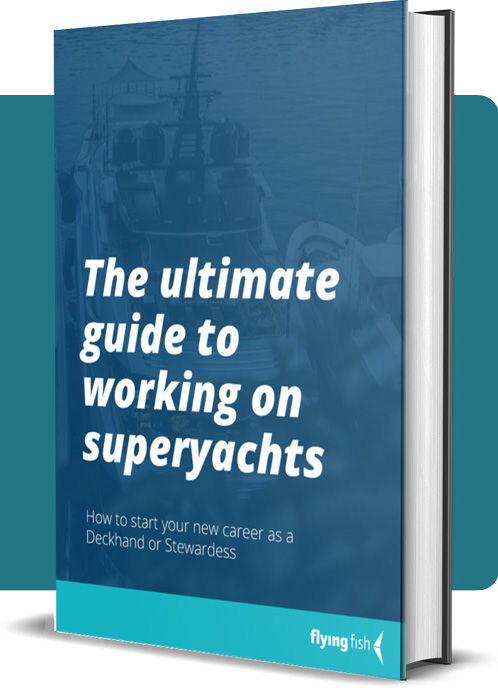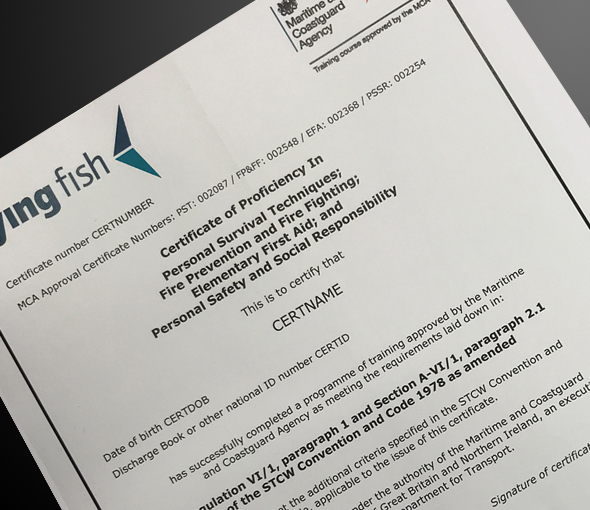
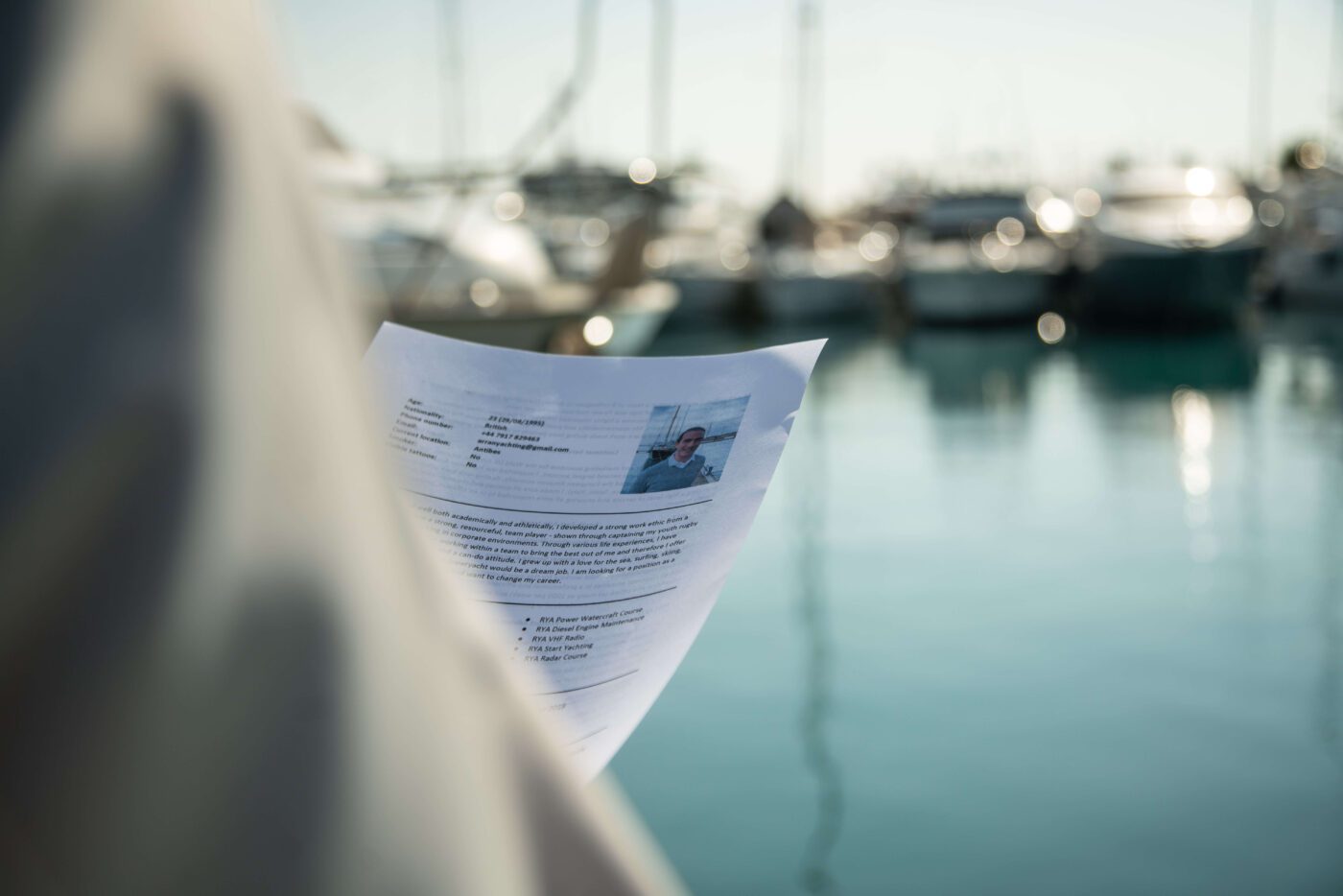
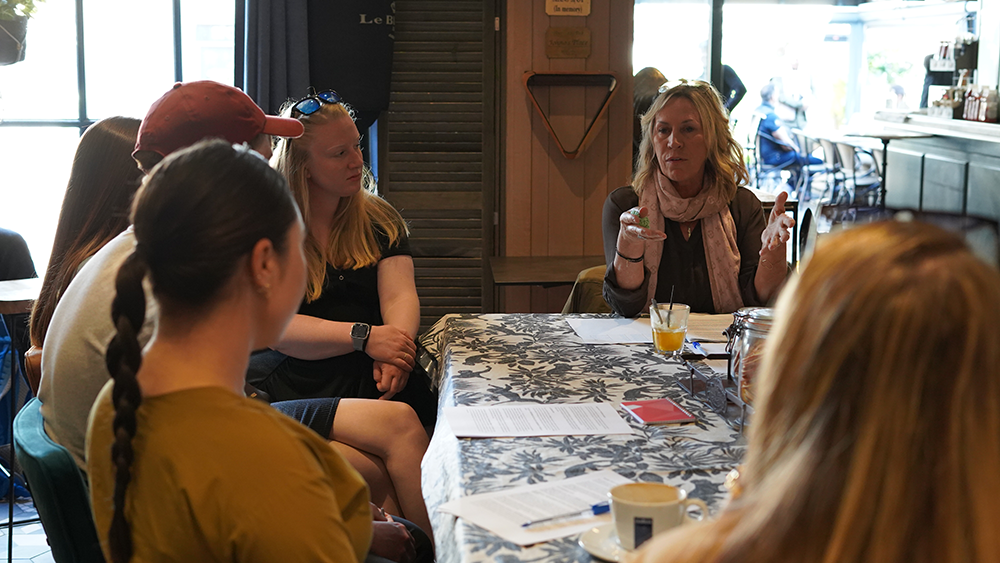
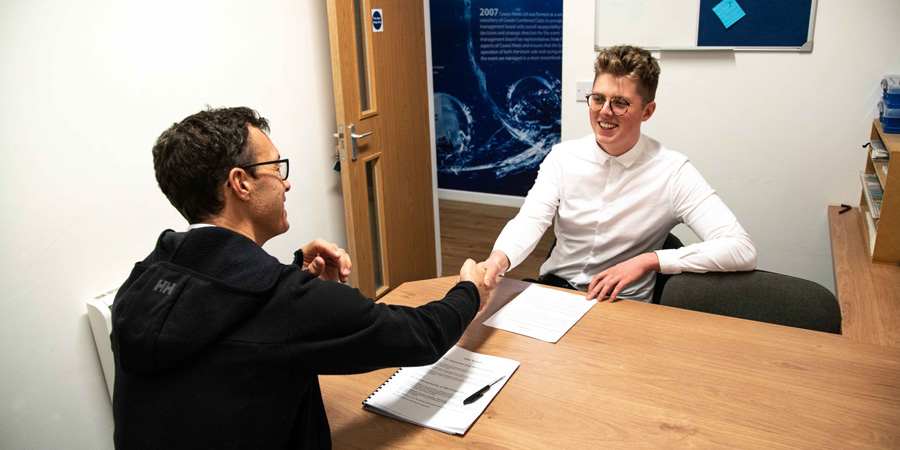
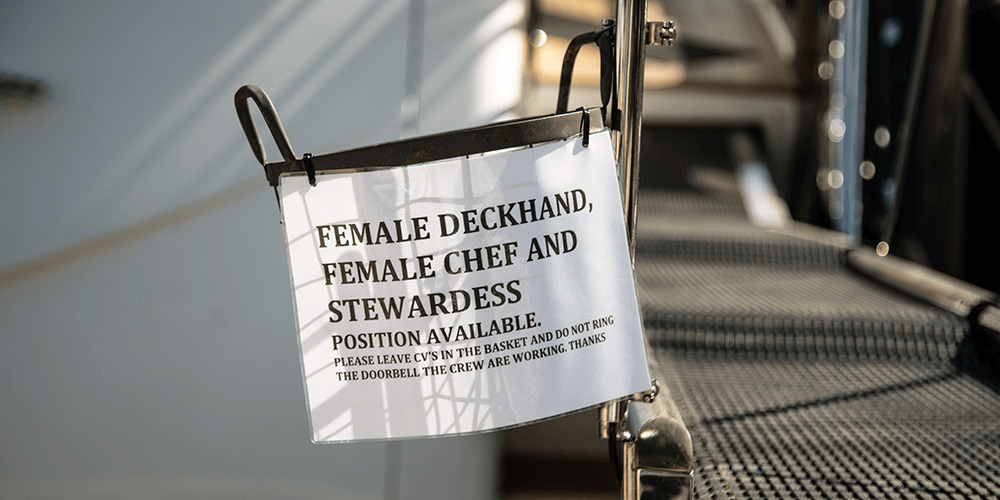
How to write a Yachting CV
If you are new to the Yachting industry or have not written a CV for a while then our guide on how to write a Yachting CV will talk you through the do’s and don’ts of the Yachting CV.
Writing a Yachting CV is different to a normal CV that you may write for a land based job. For example, if you are writing a CV for a job on a yacht then you are asked to provide a picture and give your date of birth, which is considered discriminatory if applying for jobs on land.
At Flying Fish we help hundreds of customers who are new to the Yachting industry write a professional yachting CV. Careers advice is part of our Deckhand and Stewardess courses. In fact we spend a day on CV’s, working in the industry, paying tax, how to get that first job, personal presentation and interview techniques. We wanted to share some of this advice with you to help you on your way.
First, a bit of background to a Yachting CV
Your CV is a brief snapshot of who you are, your qualifications, work experience and what you like to do in your spare time. The reader will form an impression of you while reading your CV so it is vital that you get it right. The yachting CV must include character references, as talking to somebody who knows you gives confidence to the employer.
Your CV should be no more than two-pages long. Crew agents, Captains, First Officers or Chief Stew have so many CV’s to look through, so they will stop reading if it’s too long. The CV needs to create a good first impression, it’s a sales pamphlet not an essay. You are trying to highlight the key points, what job you are looking for, your key skills, qualifications and why you want to work in the yachting industry.
Honesty
It goes without saying that you should be honest; Less is sometimes more. If you have no experience on a Superyacht then don’t feel that’s an obstacle to getting a job, it’s not. Many yachts are looking for new (green) crew. If you are a smoker say so. If you have visible tattoos then say so and let the employer decide. Make sure you have an answer for how you will cover your tattoos, should you need to do so.
Character
Working on a yacht whether a small sailing yacht or a large Superyacht your character is key. The employer will probably pay more attention to your character/work ethic than to your qualifications. Unlike most land-based jobs, your work is also your home. At the end of your day, you will return to the crew mess (living quarters). What you are like outside of work and what you do in your spare time, is as important to the yacht as your qualifications. Having a great attitude, being sociable, and able to get on with people are important social skills. On top of that, you will need to be somebody that has fantastic customer service skills, can interact with guests, presents well, be hard working and have a great, can-do attitude.
Social Media
Today we all have an online profile. You will add your name, DOB and upload a photo to your CV. With this information, the yachts who are interested in you will no doubt Facebook you to see what you do in your spare time. Be sure that your Facebook profile confirms what you write in your CV. Maximise your privacy settings to avoid any awkward conversations during your interview!
Format
How your CV is laid out, the font that you use, and the way you present your CV is as important as the content. Choose a font like Calibri, 11 point, or Verdana 10 point as they are easy to read. Make sure you save your CV as a PDF file or similar format that can be opened on both a MAC or PC. Please see our Yachting CV template for guidance.
How to write a Yachting CV
These are the seven main topics that you will need to consider when writing a CV. Please use the information below together with our Yachting CV template
- Personal information
- Your photo
- Profile
- Qualifications
- Work/Yachting experience
- Hobbies and interests
- References
The photo
You must add a passport-sized, head and shoulders image of you to your CV. No selfies. Ask somebody to take a picture of you in the morning or late evening when the sun is lower to avoid squinting. If you are applying for a job as a Deckhand then wear a polo or T-shirt, no branding – something comfortable. No need for a shirt or tie, after all, you won’t be wearing one onboard. Don’t apply filters or Photoshop to enhance the image. Your photo should be head and shoulders only. Girls, if you have long hair then tie it back so we can see your face. Minimal makeup and jewelry are advised. Men need to be clean-shaven, hair tidy. Keep your photo size below 250kb. Many boats are downloading using satellite so file size is important.
Qualifications
Start with the most important qualifications first, STCW, Proficiency in Security awareness, PDSD, ENG1 medical, Powerboat level 2, and so on. All qualifications should be bullet-pointed. If you have any additional skills that are relevant to Yachting then include them here. We don’t need to know your GCSE results.
Yachting experience
Here you outline what experience you have so far, when you were onboard, your position, and the yacht’s name. If you don’t have any yachting experience at all then you will just list the work experience you have to date.
Work experience
Your yachting and work experience should be placed in chronological order, with your most recent position first. Tell us in two or three sentences the transferable skills you gained and how you went above and beyond in your job role.
Hobbies and interests
This is arguably the most important section; what do you like to do in your spare time. Generally, yacht crew are outgoing people who like sport, travel, and adventure. If you share a passion for the outdoors then you will fit in well. Maybe you play a sport, keep fit, are a keen photographer, have run a marathon or just enjoy travel and like experiencing different cultures. All these are relevant as they show your character.
References
You will be required to list two references laid out in the same format as shown in our Yachting CV template. You will also need a written character reference from your employer. Almost all recruitment agents now ask for a written reference as part of their registration process.
